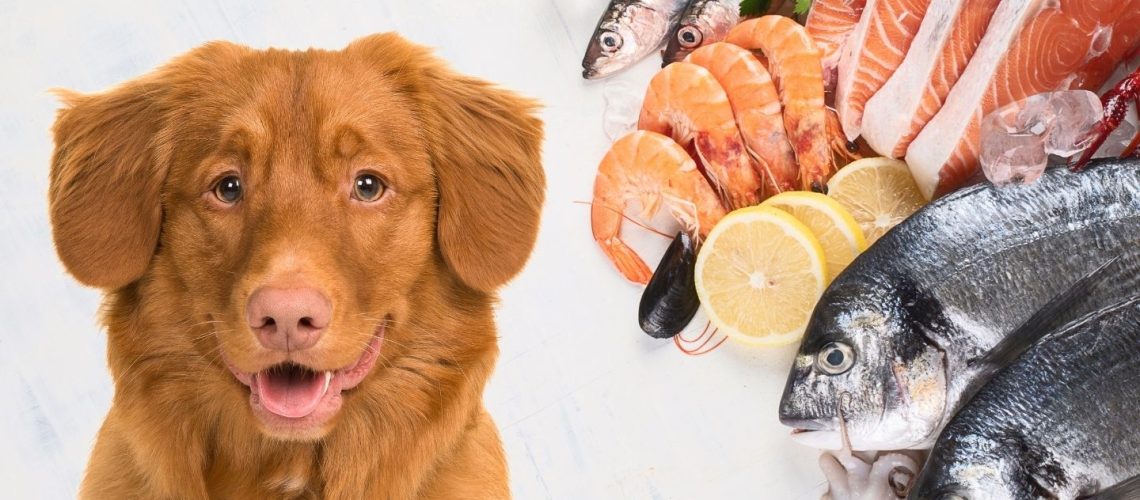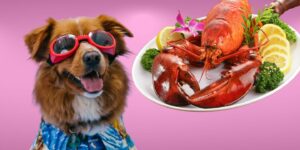Can Dogs Eat seafood? Dogs can eat seafood in moderation, but it is not an essential part of their diet. Seafood can provide some health benefits for dogs, such as omega-3 fatty acids and protein, but it can also contain harmful substances like mercury and bacteria. It is important to feed your dog seafood in moderation and to consult with your veterinarian before introducing any new foods to your dog's diet.
Nutritional Content of Seafood
Types of seafood and their nutritional value
Different types of seafood have varying nutritional values. For example, shrimp and salmon are both high in protein, omega-3 fatty acids, and essential vitamins and minerals. Other seafood, like sardines and whitefish, also offer valuable nutrients for dogs.
Omega-3 fatty acids in seafood
Seafood is an excellent source of omega-3 fatty acids, which have been shown to support skin and coat health, joint health, heart health, and cognitive function in dogs.
Protein content in seafood
Seafood is a great source of high-quality protein, which is essential for maintaining muscle mass and supporting a strong immune system in dogs.
Vitamins and minerals in seafood
Seafood is rich in vitamins and minerals, such as vitamin D, which can support bone health, and selenium, which helps maintain the overall health of your dog.
Benefits of Seafood for Dogs
Improving skin and coat health
Omega-3 fatty acids found in seafood can help improve your dog's skin and coat health, leading to less shedding and more shine.
Supporting joint health
Omega-3 fatty acids have been shown to support joint health and decrease inflammation in dogs, which can be beneficial for those suffering from arthritis or other joint issues.
Boosting the immune system
Protein and omega-3 fatty acids in seafood can help boost your dog's immune system, making them better equipped to fight off infections and illnesses.
Promoting heart health
Omega-3 fatty acids are known to support heart health, which is critical for maintaining a healthy cardiovascular system in your dog.
Improving cognitive function
Research has shown that omega-3 fatty acids can improve cognitive function and support increased overall brain health in dogs.
Risks of Seafood for Dogs
Mercury poisoning
Symptoms of mercury poisoning in dogs
Mercury poisoning can lead to symptoms such as vomiting, diarrhea, loss of coordination, and memory loss in dogs. If you suspect your dog has mercury poisoning, consult your veterinarian immediately.
Types of seafood with high mercury levels
Some types of seafood, such as tuna and swordfish, are known to have high mercury levels and should be avoided when feeding your dog seafood.
Bacterial contamination
Symptoms of food poisoning in dogs
Food poisoning from bacterial contamination, such as salmonella or listeria, can cause symptoms in dogs like vomiting, diarrhea, and fever. Consult with your veterinarian if you suspect your dog has contracted food poisoning from seafood.
Proper handling and storage of seafood
To prevent bacterial contamination, ensure that seafood is stored properly and cooked thoroughly before feeding it to your dog.
Allergic reactions
Symptoms of allergic reactions in dogs
Some dogs may be allergic to certain types of seafood, leading to symptoms like itching, hives, or swelling. If you notice any of these symptoms after feeding your dog seafood, contact your veterinarian.
Identifying and managing seafood allergies in dogs
If your dog has a seafood allergy, it is essential to identify the specific type of seafood causing the reaction and avoid feeding it to your dog.
Choking hazards
Safe preparation of seafood for dogs
Ensure that seafood is properly prepared by removing any bones or shells that could pose a choking hazard for your dog.
Safe Seafood Options for Dogs
Cooked shrimp
Cooked shrimp is a safe seafood option for dogs, as it is a great source of protein and omega-3 fatty acids.
Cooked salmon
Cooked salmon is another excellent choice for dogs, as it is high in protein and beneficial omega-3 fatty acids.
Sardines
Sardines are a safe option for dogs, as they are low in mercury and high in essential nutrients.
Whitefish
Whitefish is a good choice for dogs due to its high protein content and low mercury levels.
Crab
Cooked crab is safe for dogs to eat in moderation, as it provides valuable nutrients like protein and omega-3 fatty acids.
Seafood to Avoid
Raw seafood
Avoid feeding your dog raw seafood, as it can contain harmful bacteria and parasites.
Tuna and swordfish
Tuna and swordfish should be avoided due to their high mercury content, which can be toxic to dogs.
Shellfish
Some shellfish, such as mussels and clams, may pose a choking hazard for your dog and should be avoided.
Fish with high mercury content
Fish with high mercury content, like king mackerel and tilefish, should be avoided when feeding your dog seafood.
Tips for Introducing Seafood to Your Dog's Diet
Consult with your veterinarian
Before introducing seafood to your dog's diet, consult with your veterinarian to ensure it is a suitable option for your dog.
Start with small amounts
When introducing seafood, begin by feeding your dog small amounts to monitor their reaction and ensure they do not experience any adverse effects.
Monitor your dog for any adverse reactions
Keep a close eye on your dog after feeding them seafood to ensure they do not experience any allergies or food poisoning symptoms.
Ensure proper preparation and handling of seafood
When feeding your dog seafood, ensure it is properly stored, prepared, and cooked to avoid any potential risks.
Alternatives to Seafood for Omega-3 Fatty Acids
Fish oil supplements
If your dog cannot eat seafood, fish oil supplements are a great alternative for providing your dog with omega-3 fatty acids.
Flaxseed oil
Flaxseed oil is another alternative source of omega-3 fatty acids for dogs that cannot consume seafood.
Chia seeds
Chia seeds are a safe and natural source of omega-3 fatty acids for dogs that can be easily added to their regular diet.
Conclusion
In conclusion, dogs can eat seafood in moderation, but it is not an essential part of their diet. Seafood can provide some health benefits, but it can also contain harmful substances like mercury and bacteria. It is important to feed your dog seafood in moderation and consult with your veterinarian before introducing any new foods to your dog's diet. If seafood is not suitable for your dog, consider alternatives like fish oil supplements or flaxseed oil to provide them with the necessary omega-3 fatty acids for optimal health.









